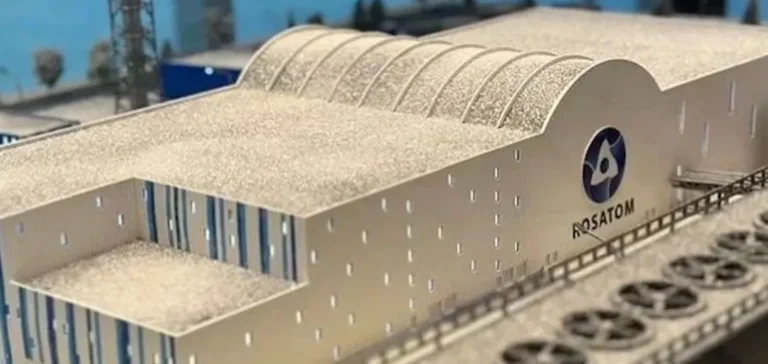Excavation works have begun at the site of the future RITM-200N small modular reactor in Uzbekistan’s Jizzakh region. The project, led by Russian state-owned company Rosatom, involves the removal of 1.5mn cubic metres of soil to a depth of 13 metres, initiating construction of one of the world’s first land-based SMRs.
Close cooperation between Russian and Uzbek entities
The ground-breaking ceremony was attended by several senior officials, including Pavel Bezrukov, Vice President and Project Director at Atomstroyexport JSC, Abdujamil Kalmuratov, Head of the Directorate for the Construction of a Nuclear Power Plant, and Ulugbek Mustafoyev, Governor of the Jizzakh region. Rosatom Director General Alexei Likhachev joined the event via video link, highlighting the project’s high level of localisation and its reliance on Uzbek subcontractors. The plant is designed for a minimum 60-year service life.
Preliminary works include 27 test and research boreholes along with engineering surveys. Technical documentation is expected to be submitted for review by the end of the year, with the first concrete pour scheduled for March 2026.
Project scales up with large reactor additions
Initially planned to include up to six SMRs, the project was expanded in late September during World Atomic Week in Moscow. A new agreement now includes two large-scale VVER-1000 reactors in addition to two 55 MWe RITM-200N units.
Rosatom began equipment manufacturing in May, casting a 205-tonne ingot of special alloy steel for the reactor pressure vessel. The RITM-200N is a pressurised water reactor derived from icebreaker technology, designed for 190 MWt and 60 years of operation. The first unit is expected to achieve first criticality by late 2029.
Talks continue for high-capacity reactor contracts
According to Russian news agency Tass, negotiations are ongoing for a contract signing in spring 2026 for the VVER-1000 units. One key condition being discussed is a workforce localisation rate of at least 70%.
The Uzbek project is Rosatom’s first export order for its SMR technology. The first land-based version is currently under construction in Yakutia, Russia, with commissioning planned for 2027.






















